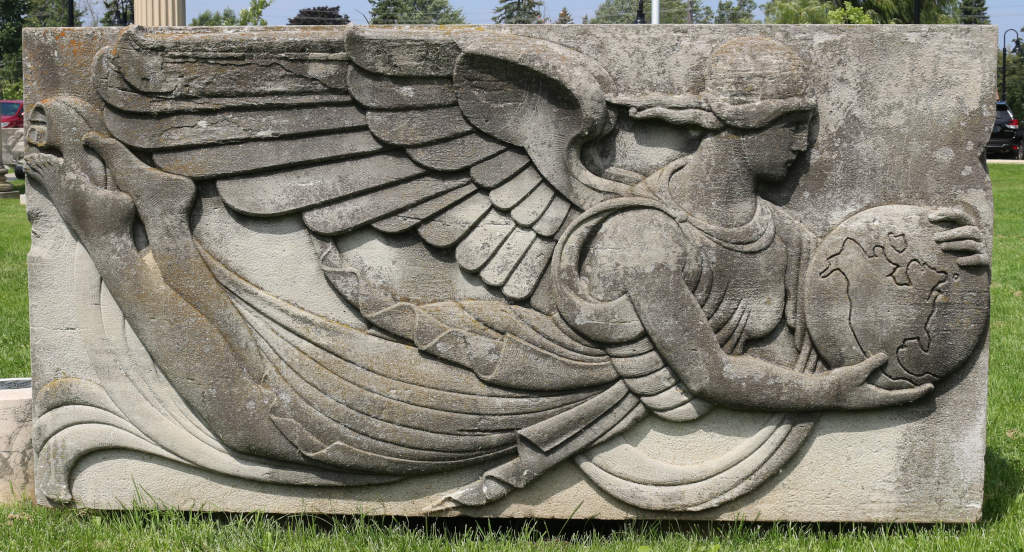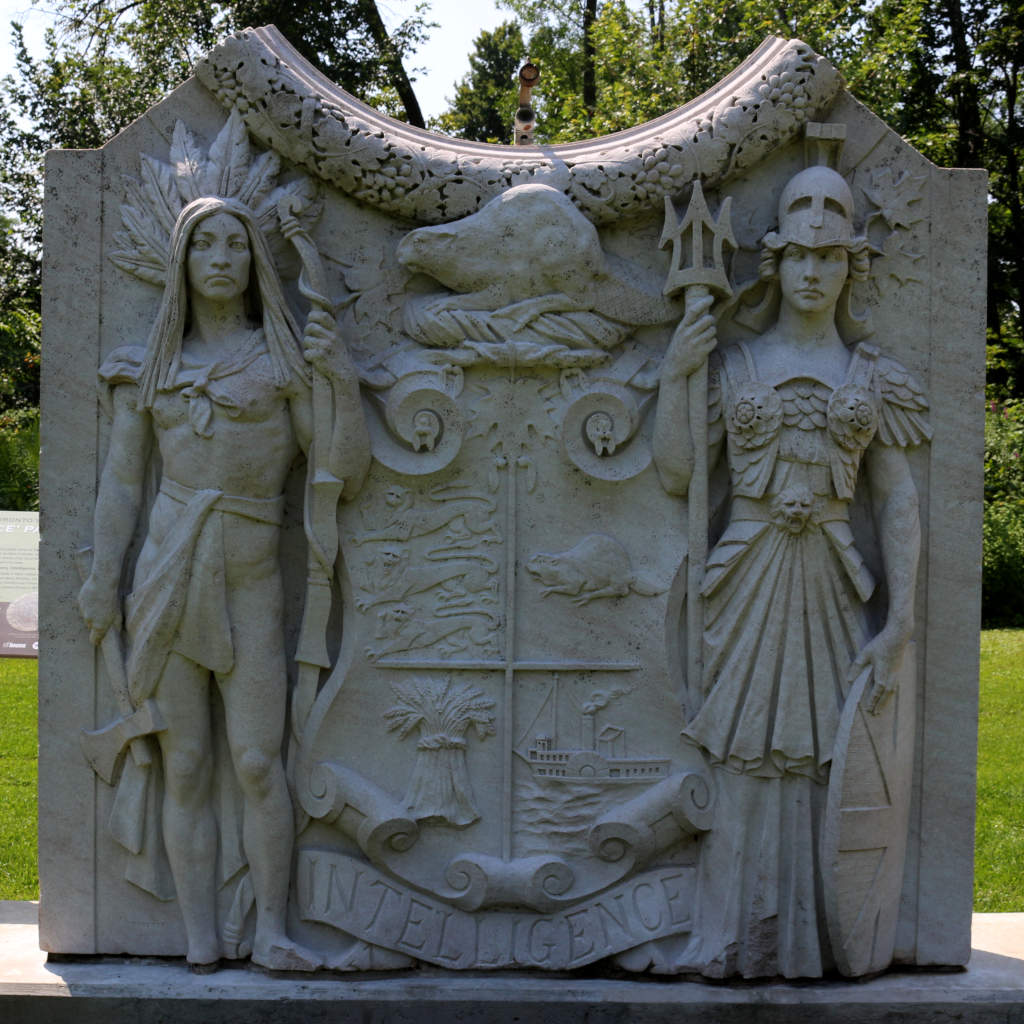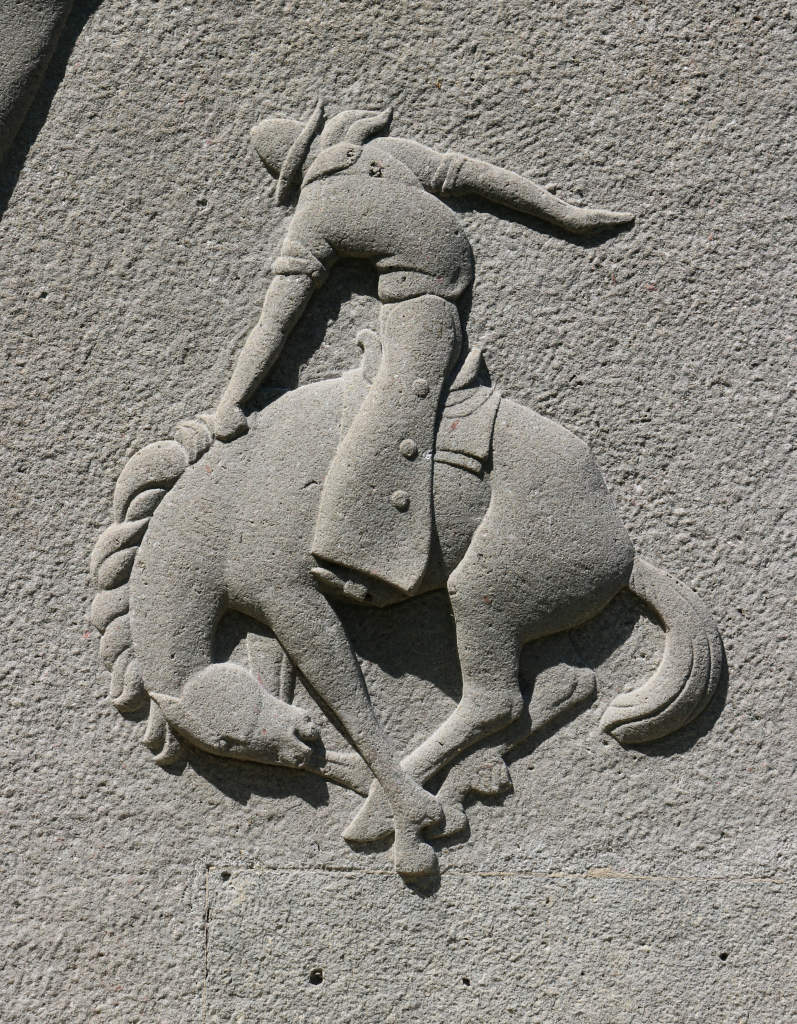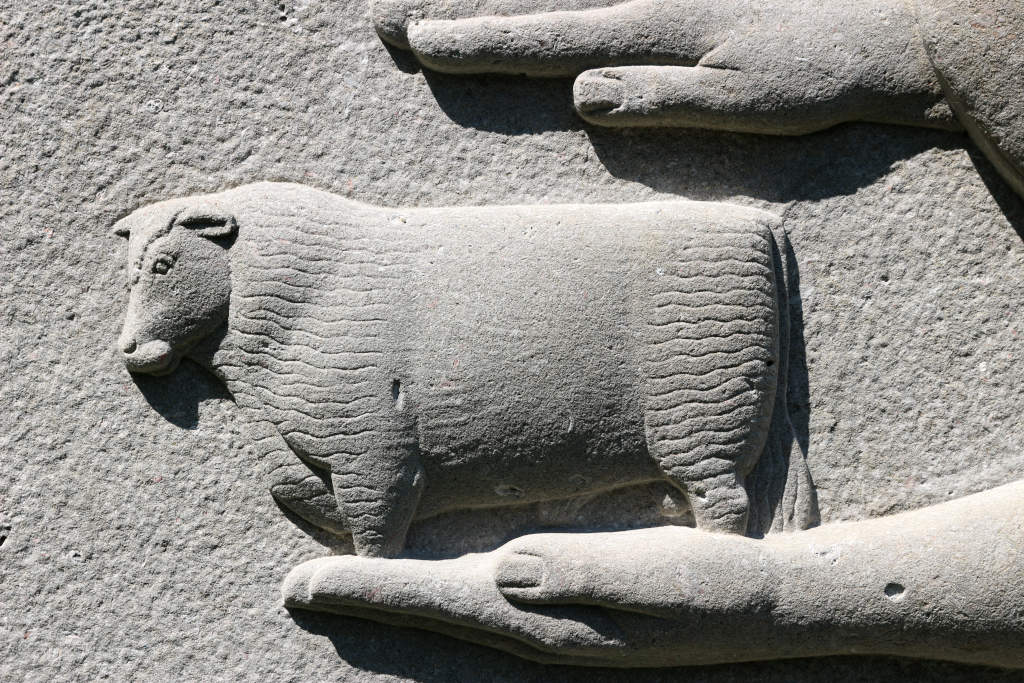The image of a naked fat guy running through the streets of ancient (250? BC) Syracuse (Greece) may well stand forever as the punchline to the greatest science lesson in history.
Part of it absolutely is the memorable silliness, but even more important is that because we recall it, we can always locate the lesson behind it.
Archimedes was an extraordinarily brilliant fellow. Not only was he the first to derive a fairly accurate value for pi, he came closest in the ancient world to teasing at the edges of calculus, with his infinitely regressive approaches to calculating the areas and volumes of curved forms (not just the circle-stuff we all did with school protractors – the parabolic approach also, really starts with him).
The cool thing is, like so many early geniuses, he wasn’t just great at conception of ideal forms, he was also fantastic with mechanisms and practical solutions. Variations of the Archimedes screw (basically, a long screw in a conformal pipe) are used to this day all over the world for both irrigation and flood control.
I can’t help digressing here to note that this one great Greek was the personal embodiment of the solution to a schism I talk about a lot – Ideal versus practical (first characterized all those thousands of years ago as Platonic versus Aristotelian).
Archimedes never settled for one or the other, he stayed vital in both approaches to thought and action, and changed the world for the better forever, by doing so.
The particular assignment which lead to Archimedes’ famous Syracuse-streak was – how can you precisely measure the volume of any object?
The reason this was important was ancient counterfeiting – the king wanted to know which of his gold was pure, and which had something else inside!

The cute thing about solid elements like gold is that they have a very consistent weight and density – so they could use a definite real bar of gold for comparison, and they could weigh the questionable gold on scales – one of our earliest precision instruments.
But how to tell whether question-gold which had the correct weight, might be a tiny bit bigger or smaller (which would say for sure there was something other than pure gold inside – because only gold has that exact weight AND density).
How can you compare three dimensional volumes precisely, in a world with no precise tape measures – or universal reference standards for production?*
He got the answer in a way I find sympathetic as can be – in the bath! He got into a full tub, he noticed the water sloshing over the sides as he entered, and suddenly realized that the water lost from the full tub would be the exact same volume displaced by his physical body, sinking down into that full tub.
Like gold – water always weighs the same as water – so the water displaced by the volume of any two physical objects (like a known-gold bar and some maybe-gold) could be compared on the pans of a scale with very high precision, even then. Which turned a comparison of weights, (something they could do) into a measure of volume (previously thought beyond them).
You can kind of understand why Archimedes got so excited by the sudden insight that he jumped right out of the bath and ran down the street shouting Eureka! (at least in the memorable version). The idea of displacement really was a huge breakthrough.
Not quite sure what something really is?
Why not have a closer look at what it moves aside, as it enters a finite space?

If you live in the same neighbourhood for a long while, and you like to smile and talk to strangers, you will gradually develop a whole group of vague but sweet friendships. I’ve mentioned the lovely old couple down the street who plant (and savour) my favourite overgrown English garden in the city, and Catherine and I have made a lot of friends in our complex, and even on our floor (yes buildings can be communities too – not just filing cabinets for people – which is so cool).
But one of my favourite random smiles on the street comes from a fellow who lives in our complex, and like me, absolutely refuses to stop learning loving and making art – no matter what the world may have to say about our efforts.
Our standard greeting is not “how you doing?” When I see him I say, “Hey man, you still singing?” (opera) and when he says “yes,” I get a feral grin of vicarious satisfaction from his undimmed determination, just as he is eternally buoyed when he asks, “You still writing?” And I say, “You know it, man!”
As far as I know, the only things we have in common aside from art and long arc determination are that we are both fast walking ectomorphs (thin people). Never have been able to figure out whether those two properties are related (mind-snakes present as an even more likely explanation, honestly).
When we see each other, it is almost always on the single road south from our complex toward the subway and busy intersection where our paths will diverge, so in a way we have built up a friendship of twenty years, all in choice ten minute chunks of shared enthusiasm.
On our latest encounter, he very kindly asked how Catherine was coping with her illness and the more general madness of the world, and then I asked what he was thinking about lately, and he came back right away with, “I tell you, if I read one more news story or essay about narratives, I think I may just scream!”
Which of course made me laugh! (I think a lot about narratives, but even more about how obnoxiously, so many of our most important subjects are presented).
Since one of my central quests right now is to figure out how to speak to as many people at once as possible, I was very interested in what was bothering him, and as he spoke I realized something I hadn’t clearly seen before myself.
A narrative is not the same as a story, and the differences are kind of scary.

A story is a self contained finite thing which you can carry around in your head with you, and will sometimes offer up an insight you can actually use (like crazy naked Archimedes, displacement, and precision measure by indirect means).
But a narrative is not self-contained, and a narrative is never entirely yours. They never actually break a piece of it off and let you take it with you. It’s more like a leash, really. An ongoing power-reference to an offstage authority which can be expected to make more or less unlimited assertions into the future.
in fact, I have a hard time thinking of any modern “narrative” which is not an attempt by one social political or economic class to exert power over other classes of people – inevitably, to better exploit them (the optimal state being when they will self-exploit on your behalf, and just send you the dividends every month).
But the even more fundamental difference between the two is that a great story makes an individual more powerful. It is a vote for democracy, in the most basic sense, because it trusts that as individuals get wiser and more useful, they will find all kinds of interesting ways to do wiser and more useful things.
A great narrative does something completely different. It swallows us up and freezes us – makes each of us one of eight billion tiny helpless stars in a fixed firmament – kind of like the old systems of cosmology based on eternal celestial crystal spheres. It pretends a completeness of knowledge which does not exist, and squashes our individual critical faculties, because it does not offer clues to let us think our own way through to good sense (very much like the confidence we get when we can not only use, but also derive the proof for, any formula). Inevitably, a narrative forces us to swallow entire foreclosing conclusions, sensible or not, and then strongly suggests punishment for the disobedient, critical, skeptical and even the humorous (because the Emperor is never happy to realize he is prancing around before the court, utterly naked). NARRATIVES SERVE POWER. (only)
Now – if you know me, you know I am insanely tempted to go off on a tangent about a bunch of specific and extremely destructive worker-obliterating narratives. In fact, I already wrote that version of the end to this piece five times – but every version just made me madder – and also detracted from the more important point about displacement.
So instead, let me observe another huge piece of displacement which we really do not like to look at or think about, (which also helps me set up a key chapter to come).

It is beyond cliche to observe that the baby boomer generation was revolutionarily self-involved and narcissistic. They shifted the balance of personal responsibility forever, and left the state looking after many new and painful problems which their mass abandonment of duty to others created, and over time enshrined as ‘norms’.
Now of course, if you’ve been reading me awhile you will already have said “Variation between individuals exceeds variation between types” in your head, with a smile (thank you again, Carmen). Of course I don’t mean all boomers, many individuals remain outstandingly generous and radiant to this day – the easiest way to tell what sort you’re dealing with? Do they mostly sneer, or are they still pretty much always kind of fun?
Sadly, the ones who mostly sneer (and their hordes of imitators in subsequent generations, to be sure) are those who have decided to stay childish and selfish forever. “Not my problem” is the password to this club – and their tone suggests they consider it a sly and sneaky victory, even though the only consistent dividend I have observed in this petty and distancing cohort is bitterness.
But the others? The ones who remain playful in their seventies and eighties? They are GEMS! (And yes, to my younger pals, I am saying make friends with the sort that still glows, now, while you can, and you are certain to get some beautiful wisdom from a long-vanished age).
Because this group bucked the revolutionary new selfishness, and discovered gratitude and commitment to others (which always seem to go together) and then kept coming back there to grow, despite all the distractions of those (and indeed these) objectively chaotic and stressful years, they alone could sort the wheat from the chaff, and learn some lessons.

How much are the struggles of our community our own problem to solve, and how much do we insist be done for us? How much do we demand, versus how much are we willing to sacrifice for others? There is nothing simple about these questions (though almost all of the modern answers we hear are oversimplified nonsense – which remains a big part of why so many things are so badly messed up right now). Regular readers might remember my recent point about closely observed (that is, responsible) conditional ideas, versus proudly passionately blind (and thus absolutely useless for practical steering) absolutes.
And this is why I mentioned that. We in the rich west have been on a decades long and still accelerating descent into the narcissism and alienation and loneliness which of course all come together. Every few years trends show we have less friends, less connection to family, less sense of community, less real human contact, less of sense of being part of a greater project or purpose – but always more and more personal petulance on every possible front (and many more tiny appliances sold, instead of big ones shared, one presumes).
Which is, I suspect, a big part of how we have all accidentally arrived at a moment when feral tribalism has pretty much displaced responsible politics, for many millions of people on all sides of everything, who are supposed to be voting as responsible citizens, on the basis of conditional (responsibly reasoned and closely observed) ideas, and not simply cheering for familiar and well branded manichaean sports teams. Plausible principled message and practical policy should be the main point of elections, not money (though both would first require politicians with competence AND integrity – which species seems to have gone extinct sometime well before the end of the last century).
And no, I’m not naive enough to think policy could ever matter exclusively, but it should at least matter a bit, right? They could at least pretend to try to sort of care, sometimes.
But millions still concentrate on narratives of how policy feels to us, and refuse to think hard and practically about how it actually changes the material conditions of life for others – which reality-disconnect was proven in a shocking way to the working classes and poor of North America, when the urban middle classers sneered that there was nothing at all to miss about old America – anyone complaining must be a bunch of racists. This with acres of once vital urban neighbourhoods rotting away on ever reduced services, just a few blocks away from gleaming condos.
What is missing is literally MILLIONS of steady working class union jobs that used to buy you a house and let you put kids through school. They miss holidays, not clan rallies.

If you are one of the millions of comfortable middle class people who are still sneering, because you honestly didn’t even notice that the dignity of your own entire working class was missing in action for the last quarter of a century, perhaps because you are so fond of your own personal modern urban lifestyle – then by objective measure, you are somewhere on the axis which ranges from infantile to sociopathic (and how is that navel lint coming along, anyhow – find the secret of the universe in there yet?)
I’m going to say it again and then sign-out (before I go on for another ten pages) ;o)
Most of the big things which are wrong, bother most people in almost the exact same way.
(Because almost everyone has more good in common, than any of us easily believe anymore).
A tiny number of people want us to keep fighting our most needed allies endlessly, about things which are very upsetting, but won’t ever cost them any long term structural money, because they want to put the feudal leash around all of our necks again, and have us unwashed masses surrender all our future self-won heroic stories in favour of their immaculate kingly narratives.
Yeah, no, sorry, not a freakin’ chance. Not ever, keep this up and you’ll make this lifelong pacifist reconsider.
I stand as I have always stood, with workers and farmers and kind hearted and responsible citizens who understand that being responsible means thinking about balancing the needs of everyone, not ever just imposing one sanitized and government certified vision on all resistors by law or force.
None of the power brokers in history have EVER cared about us and our interests in common, unless we united in popular fronts to demand and then enshrine each positive change.
I know people are different. I must accept the evidence that at this point, table scraps from the aristocracy seem a pleasing-enough reward to many millions of sneering urban narcissists who have clearly been fully domesticated.
But for those of us still working out in the fields (though there are fewer and fewer fields of skill outside of corporate cooption, with each and every year), those crumbs are unfit feed, an insult.
Stand with, or aside. But for your own and everyone’s sake – do not let them displace your heart, soul and solidarity – STAND!
¯\_(ツ)_/¯

All images from the truly beautiful gardens of The Guild of All Arts – a sculpture park and precious artistic institution in lovely leafy Scarborough (now the eastern part of Greater Toronto) which was founded in 1932 by Rosa and Spencer Clark, as an international haven for artists and sculptors with which they enriched the arts in general, and many particular artists directly for a beautiful half a century (as long as they lived). Gems from Loring, Etrog, and many other local greats can be found! (Far too many of which would have been lost forever, if not for this extraordinary park and project).
*Believe it or not, it wasn’t until the invention of the Lincoln Miller by Francis Pratt in 1855 (which Ur machine-tool, lead to a whole encyclopedia of precision tools after it, and also the rapid growth of Pratt and Whitney and a whole new wave of immensely more practical precision industrialization) that humans finally solved the problem of making hard metal pieces in one place, precisely enough that they could fit other hard metal parts made far away, every single time.
Also kind of mind-blowing, but a good reality-check for those who don’t remember a pre-internet world. Even though Archimedes influenced the world and started lines of reasoning and research which we could argue remain vital today (solar reflector furnaces, anyone?), it wasn’t until the early 1920s that copies of his key original works were finally discovered – on vellum manuscripts which had had the Archimedes masterworks scraped-off, so the ancient (but also very serious) ‘paper’ could be re-used, for a different work.
So – just to review – he changed the world, pushed forward the math that lead to engineering – his inventions saved his city from attack repeatedly, and fed (and still feed) multitudes – but if you’d checked with Snopes or a “Misinformation Expert” at any time over a period of more than a thousand years there, they would have told you that Archimedes was a conspiracy theory, with no direct hard evidence to back up the many cute but implausible assertions made about his so-called accomplishments and contributions.
(and anyhow, people that sneering and lazy really don’t actually believe that people who are as smart, energetic AND helpful as Archimedes, were ever even really possible).
So yes – trust your own eyes and heart (and gather all of the stories you can that challenge inform and empower you). Save those mind-numbing narratives for when your brain doesn’t really work anymore, and auto-pilot is a consolation. It isn’t just that they’ll be more your speed by then.
Far more to the point – we have work to do first, my friend. Wackiness is for afters, right?









